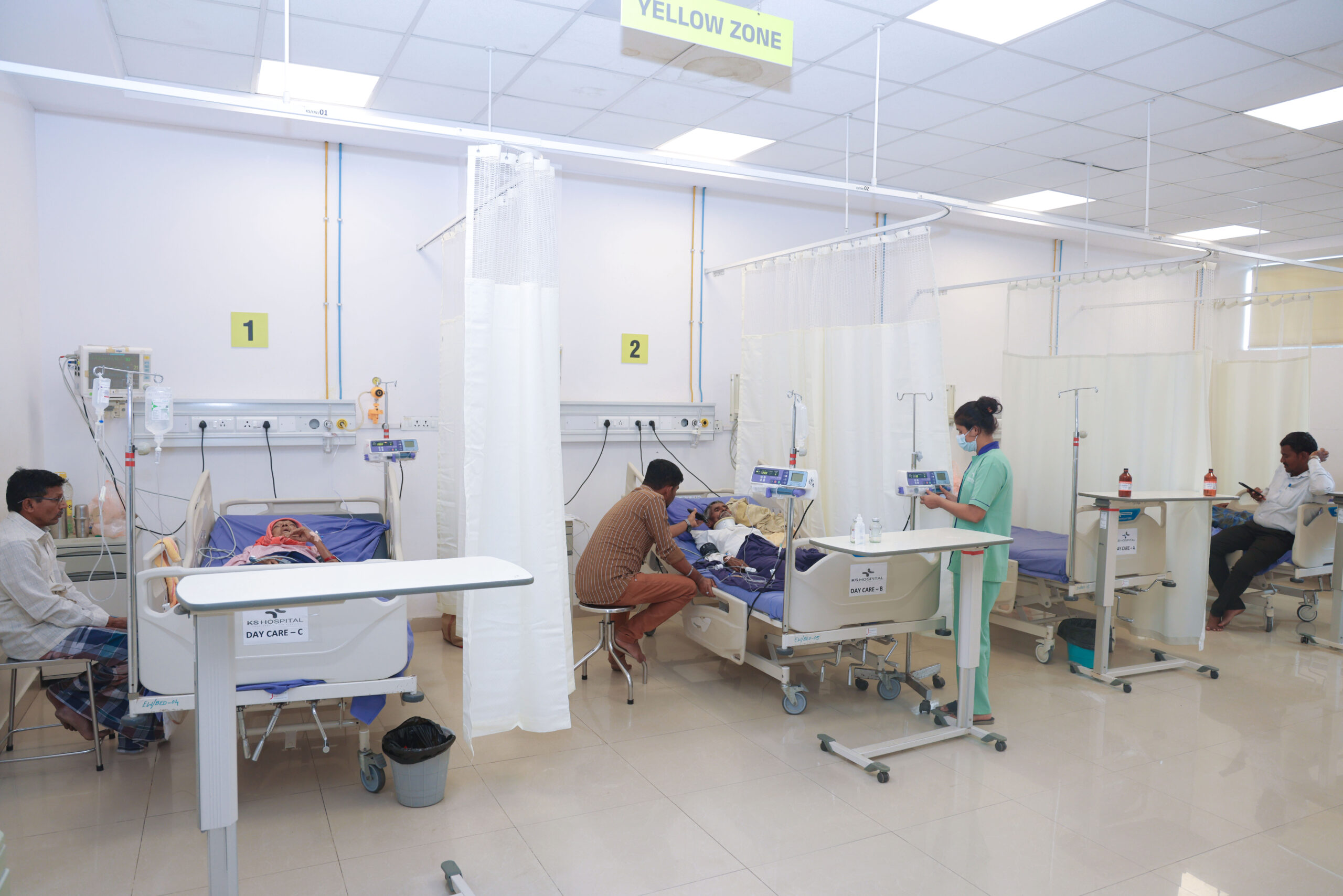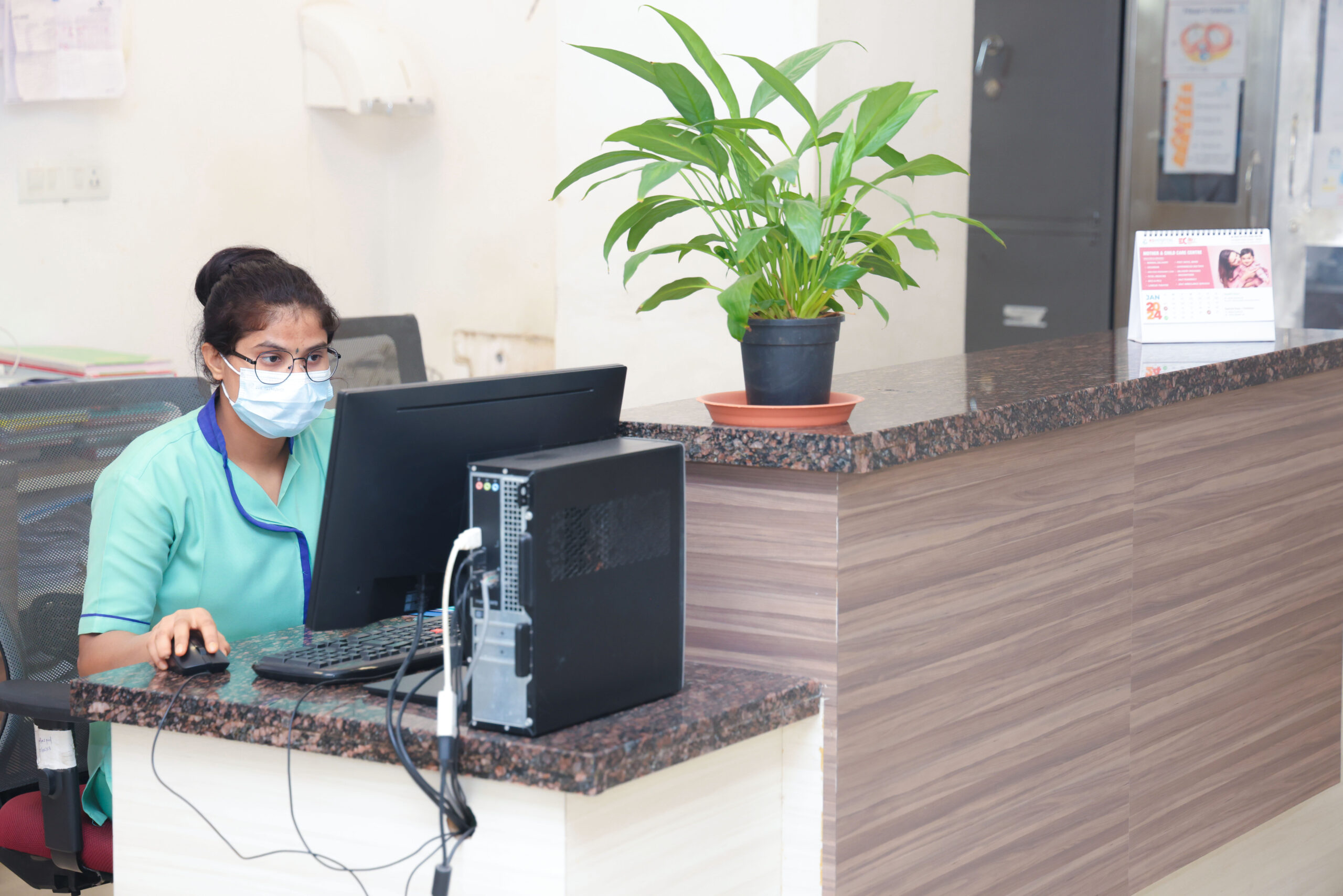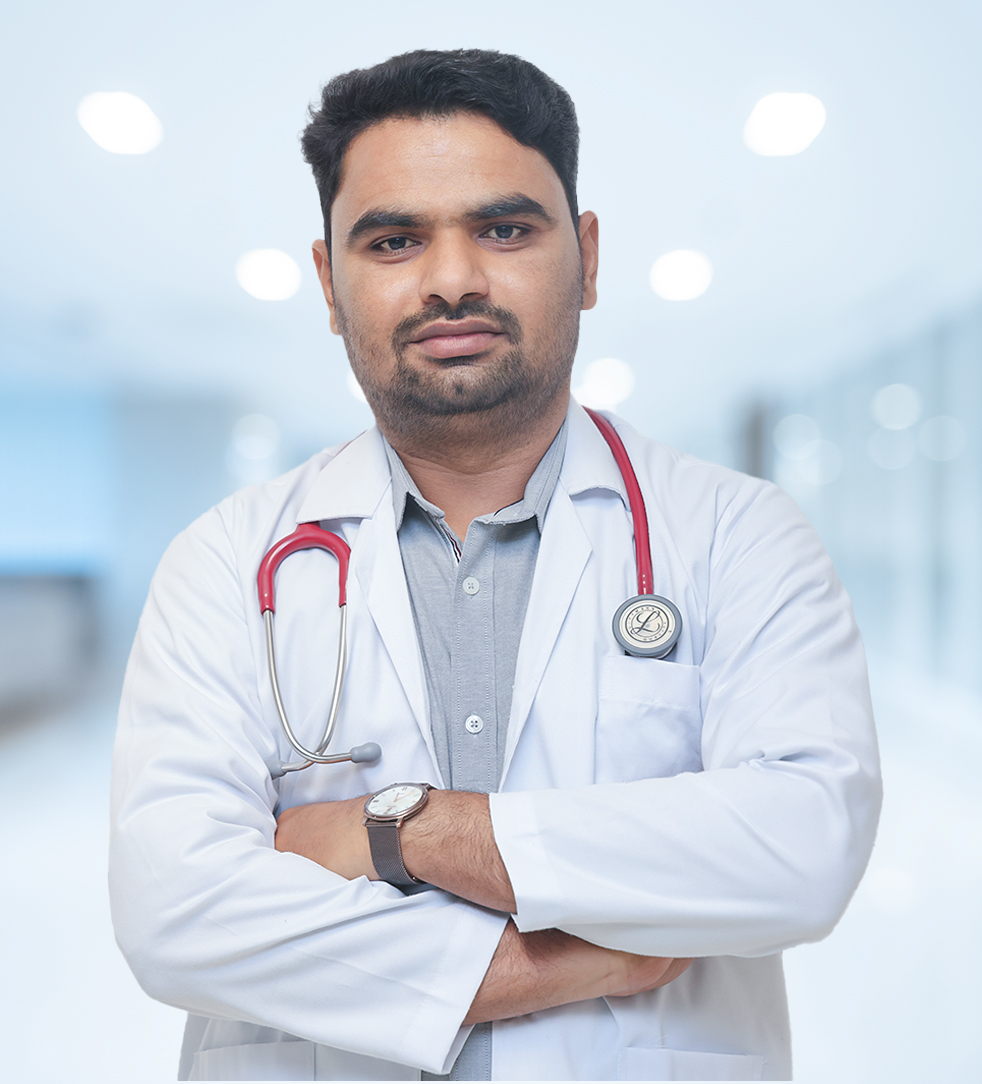Department of
Emergency & Trauma Care

Emergency and Trauma Care
KS hospital is the Best Emergency Care Hospital in North Karnataka. In any emergency, time is crucial. Care providers must understand the value of time and be well-experienced to make quick, accurate decisions. Any delay or simple mistake can cost patients their lives. KS Hospitals’ emergency medicine and trauma care facilities are among the most advanced in North Karnataka. They feature specialized care sections for Accident and Trauma, Cardiac Emergencies, and Pediatric Emergencies. Our department comprises professionals with specialized training and years of experience in handling medical emergencies.
The emergency medicine and trauma department includes leading fellowship-trained experts in emergency care, with subspecialists available for consultations. The Centre is staffed with trauma physicians, emergency room physicians, surgical residents, and nurses—all ready to respond to any medical emergency.
We have one of the largest emergency care departments, with many years of experience, treating thousands of patients each year. Our emergency care wards are well-equipped with the latest technology to provide the best service and care to patients.
PROCEDURES
MECHANICAL VENTILATION
Mechanical Ventilation is a form of artificial respiration that uses a ventilator, which is a breathing machine, to assist the patients with their breathing. It is used when the Lungs are not functioning properly. This breathing support helps in getting enough oxygen to the body and also helps in the removal of carbon dioxide from the body. Mechanical ventilation is used in the ICU when patients are not strong enough to breathe on their own so they take complete support of the machine, ventilator. Doctors take extreme care to prevent the patient from developing infections in the Lungs, especially Pneumonia.
Mechanical ventilation involves the penetration of an instrument through the mouth or the skin. There are two main modes of mechanical ventilation and they are positive pressure ventilation, where air is pushed into the trachea, and negative pressure ventilation, where air is sucked into the Lungs.
ELECTROCARDIOGRAM (ECG)
An Electrocardiogram (ECG) is a test that is commonly performed to check the electrical activity of the Heart. An ECG shows the Heart’s electrical activity by tracing lines on paper. These tracings which have spikes and dips are called waves.
An ECG is performed to find the cause of unexplained chest pain. This could be caused by a Heart Attack. It also helps in finding the cause of the symptoms of Heart Disease. The symptoms include shortness of breath, dizziness, and palpitations. The other uses of ECG are to find out the thickness of the walls of the Heart, to check if the medicines used to treat the Heart are working properly and also to check the health condition of the Heart when other diseases are present.
ARTERIAL LINE
An arterial line is a catheter that is inserted into an artery, as is the case for IVs. They may be inserted into the wrist or groin. The arterial line is a way to constantly monitor and measure the blood pressure of the patient. This constant monitoring of the blood pressure is essential to treat the patient safely. Arterial lines can be used in patients with very high or low blood pressure. It also provides access to frequent blood sampling, as the blood can be withdrawn from the patient with the help of the catheter.
An arterial line is mostly inserted in the radial artery of the wrist or brachial artery at the elbow. Insertion is usually painful so this procedure is performed under local anesthesia. Arterial lines are typically inserted by physicians, surgeons, anesthesiologists or nurses.
CARDIOPULMONARY RESUSCITATION (CPR)
Cardiopulmonary Resuscitation (CPR) is the combination of life-saving measures performed to restart Lung and Heart function in a patient who has stopped breathing or whose Heart has stopped beating. This condition is called Cardiac Arrest. A few methods may include applying pressure on the chest attempting to restore the Heart rhythm to normal (with an electric shock) and also administration of medications and artificial respiration using a face mask or breathing tube.
When the Heart stops, the lack of oxygenated blood can cause Brain damage. In this condition, a person may die within 5-10 minutes. CPR can keep oxygenated blood flowing to the Brain and other vital organs until any other medical treatment can restore a normal Heart rhythm.


KS Hospital Koppal, offers advanced facilities for trauma treatment, excellent diagnostics, and affordable emergency care in North Karnataka. As the leading emergency hospital and trauma care center in the region, we provide top-notch emergency health services for critically ill patients.
Our team of expert emergency care doctors is available around the clock, delivering the finest treatment and interventions. Our specialists bring vast experience and diverse expertise in emergency care, contributing to our reputation as the best emergency and trauma care provider in North Karnataka
EMERGENCY UNIT – MEDICAL CONDITIONS
- SPONTANEOUS ABORTION
It is a non-induced fetal death or passage of products of conception before 2 weeks gestation. It is a medical emergency as vaginal bleeding occurs during this condition. - TRAUMATIC BRAIN INJURY
This condition involves temporary or permanent damage to the Brain tissues. It is a result of a hard impact on the head or Brain which is often associated with internal bleeding or swelling of the Brain. - HEART ATTACK
A Heart Attack is a serious medical emergency in which the supply of blood to the Heart is blocked usually due to a blood clot. The person experiences tightness and pain in the chest. - TRAUMA
Most of the traumas are caused by motorbike accidents or falls. Very rarely people are a victim of stabbing or shooting. Trauma may result in an assortment of injuries to various parts of the body. - RESPIRATORY FAILURE
When basic functions like the bringing of oxygen and removal of carbon dioxide from the bloodstream, are impaired, a life-threatening situation may occur. - BONE FRACTURES
Bone fracture is a medical emergency where the continuity of the bone is broken due to high-force impact or stress. The person undergoes immense pain and trauma.
- DOCTORS
- FACILITIES
Facilities available at our Hospital:
The Department of Emergency and Trauma Care at KS Hospital is specialised in offering Emergency Care. Since every second counts, we have what it takes to act fast and see of the critical period.
Some of the facilities available round the clock, 365 days include:
- Round the clock emergency care for all medical and surgical emergencies (Both adult and pediatric)
- 24 Hour cover by Specialist doctors – Emergency Physicians, apart from Resident Doctors
- Well Equipped & dedicated Trauma Care facility and team
- Acute Stroke Team
- Mental Health Emergencies
- High end ICU Ambulance services for transfer of critically ill patients, including children
- 24 x 7 In-Hospital supporting team, including radiology & Lab
- Emergency Department team: Well Qualified, trained and dedicated emergency Physicians, Nurses to provide the best in class Emergency Care.
- Trauma Care Team: Immediate attention by dedicated trauma team ( multi speciality) for all poly trauma cases for early resuscitation

